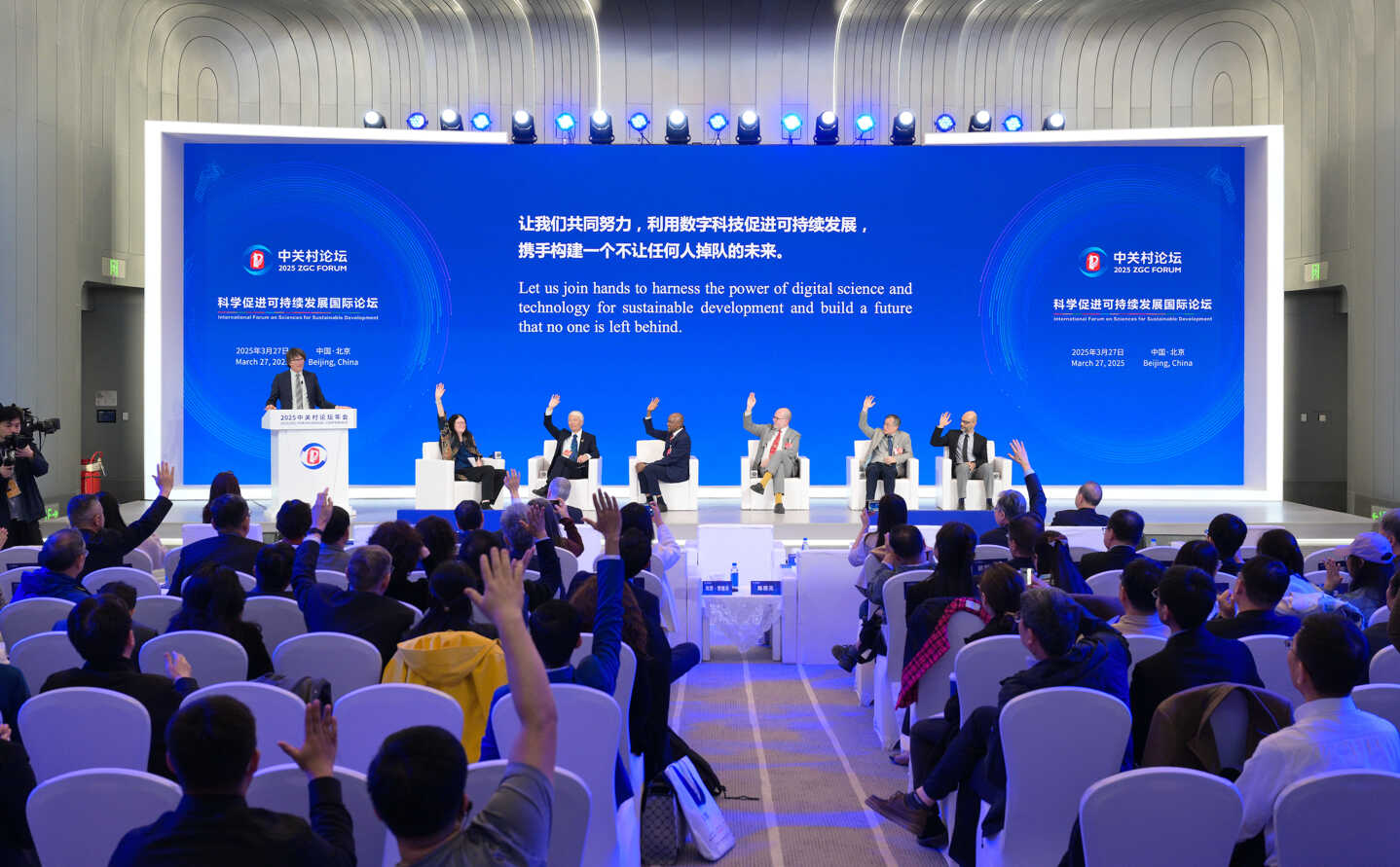
A global initiative aimed at enhancing international cooperation for sustainable development through digital science and technology was unveiled on Thursday at the "International Forum on Science for Sustainable Development." This event was a parallel gathering for the 2025 Zhongguancun Forum.
Co-hosted by the Chinese Academy of Sciences (CAS) and the National Natural Science Foundation of China, the forum brought together nearly 200 participants from international organizations, research institutions, and academia. The theme for this year's forum was "Digital Technologies Driving Sustainable Development". It forms part of the UNESCO-led initiative, the "International Decade of Sciences for Sustainable Development (2024–2033)."
While the UN 2030 Agenda for Sustainable Development is more than halfway through its timeline, progress remains inadequate, said Professor GUO Huadong, Director-General of the International Research Center of Big Data for Sustainable Development Goals (CBAS) and a CAS member.
He emphasized the transformative potential of digital technologies in sustainability science, particularly referring to the newly launched Digital Sustainable Development Goals Programme (DSP), which received UNESCO approval in February.
GUO underlined the critical role of digital technologies in transforming sustainability science, particularly through the recently launched Digital Sustainable Development Goals Programme (DSP), which was approved by UNESCO in February. The programme, initiated by CBAS and involving over 35 institutions from more than 20 countries, aims to build global digital infrastructure and drive innovation for monitoring the Sustainable Development Goals (SDGs).
During the forum, GUO provided updates on SDGSAT-1, the world's first scientific satellite dedicated to the SDGs. Operated by CBAS, this satellite has already disseminated over 420,000 datasets to users in 104 countries. The data is instrumental for global research into urban heat islands, carbon emissions, and more.
"In the future, a constellation of SDGSAT satellites is expected to serve as an even sharper 'eye in space' for global sustainable development," said GUO.
A key outcome of the forum was the release of the "Beijing Initiative on Digital Science and Technology for Sustainable Development." Johannes Cullmann, Scientific Advisor to the President of the 77th Session of the United Nations General Assembly, presented this initiative on behalf of participants from 16 countries. It identifies five action areas driven by digital innovation to tackle global sustainability challenges and foster international collaboration.
The forum highlighted the crucial importance of science, data, and international partnerships in fulfilling the commitments of the UN 2030 Agenda while paving the way for a more resilient, inclusive, and sustainable future.

A scene of the international forum. (Image by AIR)

86-10-68597521 (day)
86-10-68597289 (night)

52 Sanlihe Rd., Xicheng District,
Beijing, China (100864)

